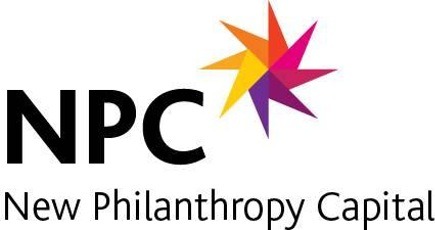Last night I went to an event hosted by the Bulldog Trust in partnership with New Philanthropy Capital. Their building is next to Temple Tube opposite the HMS Wellington where we have held numerous Ethos events. The inside of the building is clad with rather splendid hardwood and the stained glass windows are stunning.
From the event call: “collaboration can improve the charity sector’s impact: helping organisations tackle complex problems they could not resolve alone, reducing duplication, sharing knowledge and reaching a wider audience.”
So what happened? Well, to be honest parts of it were quite frustrating for me. What was missing (IMHO) was any focus on solving problems. Where have we put priority to solving a specific problem ahead of our institutional (or individual for that matter) self-interests?
We seemed to spend much of the debate talking (not exclusively I must add) about each “institution’s” perspective of the interfaces between them and the rest of of world. Some of it involved deep dives indeed about “oh yes we do collaborate a lot”. and “Oh yes, we’ve seen lots of issues in those cases where this or that did not work.”
Will Somerville was great  (unbound philanthropy) and came into his own especially in the Q&A when he talked about his experience of “collective action” where a series of orgs come together with a very specific challenge. In that case very specific outcomes, targets and measures are set. He thought that the “backbone organisation” was key to the success of such initiatives, in his experience. That organisation often is the funder or the programme manager.
(unbound philanthropy) and came into his own especially in the Q&A when he talked about his experience of “collective action” where a series of orgs come together with a very specific challenge. In that case very specific outcomes, targets and measures are set. He thought that the “backbone organisation” was key to the success of such initiatives, in his experience. That organisation often is the funder or the programme manager.
Well whilst we all sat there, many of us protecting our £60m+ (or more) endowments with a track record against that balance sheet of perhaps only £1m of charitable activity per year (enough to scratch our own self-Interested itches but not to really impact any complex problem) something is happening on the network. And it most definitely has no “organisational” backbone.
The DAOHUB.org is a crowdfunding exercise that is raising funds to help “distributed autonomous organisations” do things without “backbones”. They are just networked actors coming together without any centralised organisation commanding or controlling them! If this all sounds like star-wars then it may be worth pointing out that this particular fundraising has been running a little over 2 weeks and still has a little under 2 weeks to run. As I write this article the crowd has raised over $145m and is now the world’s largest crowd fund. Without a “backbone”. It’s only backbone is the code that define how people “vote” for the allocation of funds.
It’s a distributed ledger based on Blockchain technology.
I woke this morning and couldn’t help think that “endowments”, national lottery grants and suchlike could be guilty of unintended consequences. Shock horror. Did I really say that?
To what extent do the big fat cheques act to perpetuate the status quo? To what extent are they self-serving? If the objects of a charity are to relieve suffering of refugees and migrants, would that object be better served by spending the £60m this year and disbanding? Have a bumper year, make a difference then start again? Or should the charity plod along for 50 years making no impact whatsoever? Do we have examples of data to support examples of these two extremes? Do we challenge ourselves to think about them?
Back to Blockchain. What might be possible if we brought the networks and institutions together with a resolve to solve problems regardless of their institutional contexts? Magic? Disruption? Change? We don’t know the answers to this question. But I’m determined to find out!
